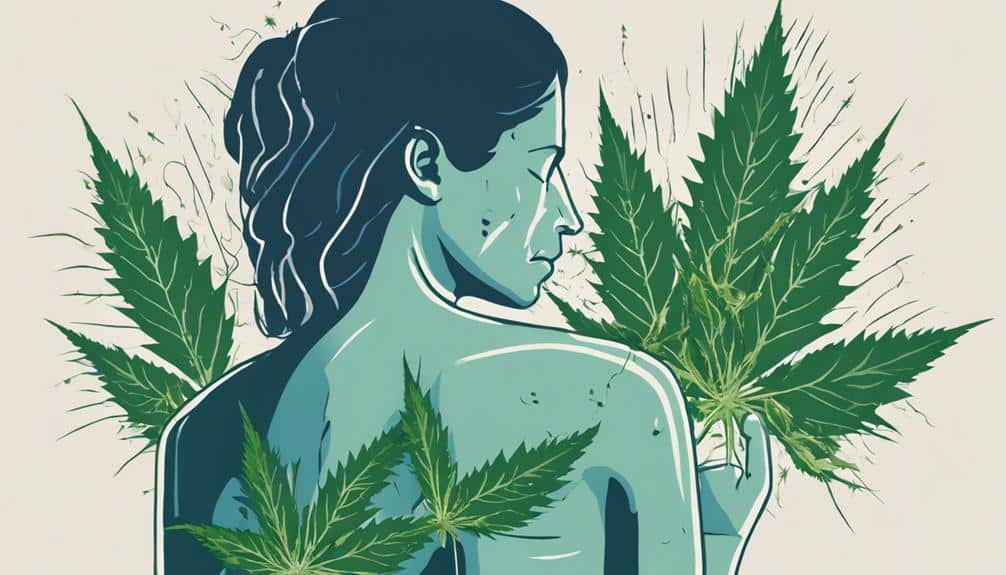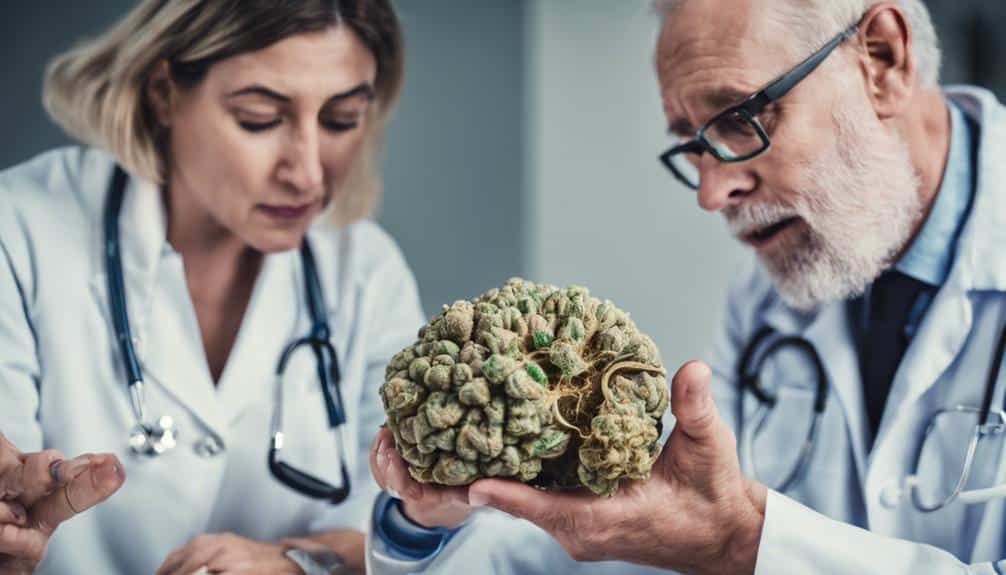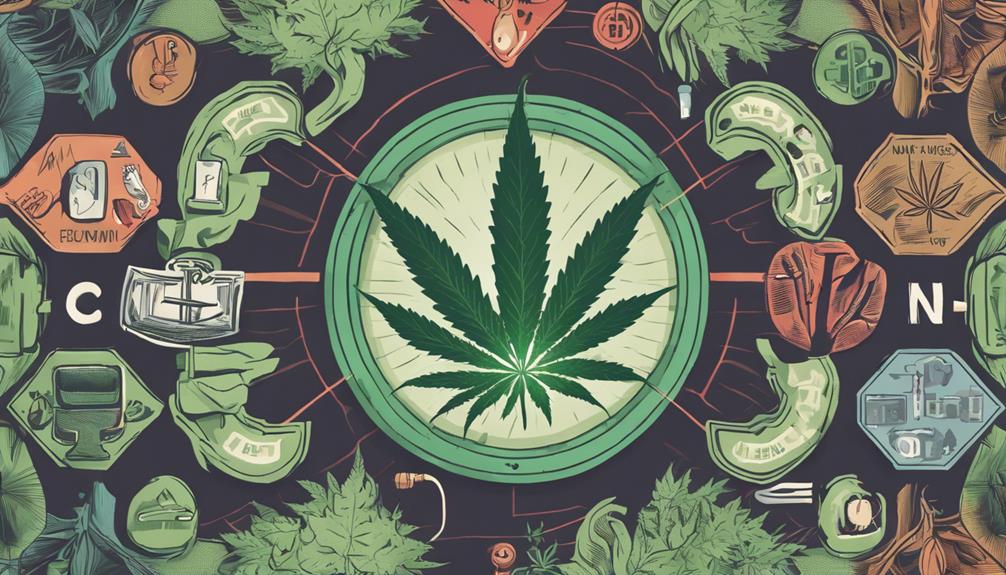You’ve likely heard about the potential of medical marijuana for managing chronic symptoms, but have you ever wondered why many consider it their only choice? It’s not just about the relief it provides, but also the unique way it achieves that relief. Imagine having a single tool that can target pain, reduce inflammation, and ease anxiety. Sounds too good to be true? Well, it’s not. But there’s more to this story, and it’s time we delve deeper into this subject together. So, are you ready to embark on this journey with me?
Understanding Medical Marijuana

As our society deepens its understanding of medical marijuana, you deserve to know what it entails. This potent plant isn’t just about getting high; it’s also about getting healthy. There’s a science behind using medical cannabis that begins with understanding the delicate balance between dosage control and its potential health benefits.
Dosage control is crucial because it allows you to tailor the effects of medical marijuana to your unique needs. You’re not just consuming blindly; instead, you’re strategically using a tool for health improvement. It involves finding the quantity that provides relief without triggering unwanted side effects—a process requiring personal experimentation and monitoring.
The health benefits of marijuana are vast and varied—it can alleviate chronic pain, reduce inflammation, soothe anxiety among other things—and has been found helpful in severe conditions like epilepsy and multiple sclerosis. These benefits aren’t hypothetical; they’re backed by research and real-world experience.
The Science Behind Cannabis
When we delve into the science behind cannabis, we find a complex interplay of compounds working together. It’s not just about THC, the psychoactive substance that gets you “high”. The plant is much more intricate with over 100 cannabinoids found in it, each affecting the body differently.
Your body has an endocannabinoid system—a network of cannabinoid receptors spread throughout the brain and body. THC, CBD, and other cannabinoids interact with these receptors, altering a range of bodily functions from mood to appetite to pain sensation. This interaction makes cannabis such a potent medicinal tool.
Let’s focus on CBD for a moment. Unlike THC, it doesn’t produce a “high”. Instead, it’s a powerful anti-inflammatory and analgesic—making it highly effective for managing long-term symptoms. It’s also an antioxidant that helps protect your body from harmful effects of free radicals.
Understanding the science behind cannabis enables you to serve your patients more effectively. By grasping how cannabinoids interact with the endocannabinoid system, you’re better equipped to tailor treatments to individual needs. This is the power and promise of medical marijuana.
Medical Marijuana and Chronic Pain

Persistent pain can be debilitating; finding relief often feels like an endless pursuit. You may have tried traditional pain relief methods only to find them lacking. Medical marijuana has emerged as a promising alternative for managing enduring conditions.
Unlike conventional treatments, medical marijuana targets multiple pain pathways in the body—offering a holistic approach to pain management. Its components, cannabinoids, have been found to inhibit the release of neurotransmitters that perceive pain in the brain and spinal cord, effectively reducing discomfort.
Furthermore, medical marijuana’s side effects are often less severe than those of opioid medications commonly prescribed for persistent pain. Patients using medical marijuana have reported fewer instances of constipation and a lower risk of dependency—enhancing its long-term usability.
Most importantly, medical marijuana empowers you to take control of your pain management. Many patients report improved sleep and increased functionality—leading to a better quality of life.
Therapeutic Role in Mental Health
Beyond physical relief, medical marijuana also shows promise in managing mental health conditions. Its therapeutic role extends into mental well-being—making it a potentially transformative tool in psychiatry.
Consider anxiety—a common mental health disorder. The debilitating effects it can have on an individual’s life are well-known. Medical marijuana, specifically CBD, has shown significant potential for providing anxiety relief. Numerous empirical studies conclude that CBD can help reduce anxiety levels in individuals suffering from various anxiety disorders.
It’s not just anxiety that can be addressed; medical marijuana also has potential for helping cope with other mental health conditions like depression, PTSD, and bipolar disorder.
However, it’s crucial to understand that medical marijuana isn’t a cure-all—it’s a tool that can be effectively used alongside other treatments for long-term symptom management.
In your professional or personal life as you serve others remember this: Medical marijuana could be essential in helping them regain control over their mental health—it’s worth considering especially when conventional treatments don’t provide adequate relief.
Treatments in Neurological Diseases

Surprisingly, medical marijuana has also been studied for its potential role in treating neurological diseases. It’s not just about symptom relief; it’s about neurological benefits that could transform the lives of those living with these conditions.
Research shows that compounds in medical marijuana, especially cannabidiol (CBD), may have neuroprotective properties—meaning they could help protect nerve cells against damage, inflammation, and the functional impairments that accompany many neurological diseases.
If you’re serving patients with neurological conditions like Multiple Sclerosis, Parkinson’s, or even Alzheimer’s—wouldn’t you want to offer them a treatment that could minimize their symptoms and potentially slow the progression of their disease?
But it’s not just about potential disease modification. Evidence supports that medical marijuana can also provide symptom relief. For individuals dealing with chronic discomfort, spasticity or even sleep disturbances often accompanying neurological conditions—medical marijuana could offer a source of relief.
Medical Marijuana in Palliative Care
In the field of palliative care where end-of-life comfort is paramount conventional medications often fall short. Side effects such as nausea, pain and decreased appetite can exacerbate suffering and lower quality of life. This is where medical marijuana steps in.
The main components of medical marijuana THC and CBD work synergistically to provide symptom relief. THC acts as a potent analgesic and appetite stimulant while CBD helps reduce nausea and anxiety—together they manage symptoms enhance well-being and improve overall quality of life in palliative care.
Furthermore, medical marijuana offers a more personalized approach to symptom management by adjusting the THC:CBD ratio and dosing frequency you can tailor the treatment to meet individual patient needs—a flexibility rarely achievable with conventional medications.
Side Effects and Risks

Despite the promising benefits, it’s necessary to consider potential side effects and risks associated with medical marijuana. While its potential advantages can be significant—particularly regarding long-term symptom management—these must be weighed against an understanding of potential drawbacks.
The most common side effects of medical marijuana are similar to those of recreational use—vertigo, dry mouth, unease, and temporary memory loss. However, long-term safety is less certain. Prolonged use can result in dependence and there’s an increased risk of mental health problems especially in individuals predisposed to such issues.
Furthermore, it’s vital to remember that each person’s body responds differently to medications. What’s effective for one patient may not be as successful for another. Hence, it’s crucial to monitor your body’s reaction to the treatment and communicate any adverse effects to your healthcare provider.
Legal Aspects of Medical Marijuana
Navigating the legal terrain of medical marijuana can be challenging. Fluctuating legal regulations across states and countries make patient access a complex issue—the legal aspects don’t exist in a vacuum but are interconnected with social attitudes medical research and political will.
In some jurisdictions medical marijuana is fully legal meaning you can access it with a doctor’s recommendation however in other areas it’s only decriminalized or worse completely illegal these disparities create confusing situations for patients requiring long-term symptom management.
It’s vital to be aware of the legislation in your locality. This isn’t just about staying on the right side of the law—it’s about ensuring you can access the treatment you need without unnecessary hurdles. Medical marijuana has demonstrated its worth in symptom management but legal challenges surrounding it can be a significant barrier.
The key takeaway? Be informed and proactive. Understand the legal regulations affecting patient access to medical marijuana in your area—it’s a complex landscape but with knowledge and perseverance you can navigate it effectively.
Patient Stories: Real-world Experiences

Real-world experiences offer numerous patient stories that underscore the efficacy of medical marijuana for long-term symptom management. Personal testimonials reveal undeniable relief from chronic pain, debilitating nausea, and crippling anxiety among other symptoms.
These patient perspectives provide more than just clinical data—they illuminate the human side of medical marijuana use. Consider Sarah, a 32-year-old cancer survivor who found solace in medical marijuana during her rigorous chemotherapy sessions or Tom, a veteran suffering from PTSD who attests to its calming effects in managing his anxiety and insomnia.
These stories reflect a broader narrative of hope resilience and healing—they illustrate how medical marijuana isn’t just an alternative treatment but often the only choice for those seeking long-term symptom management.
It’s important to note these experiences aren’t outliers—they represent a growing consensus among patients—but remember while these testimonials offer compelling evidence they should be considered alongside medical advice.
The goal is to empower patients with knowledge allowing them to make informed decisions about their health—medical marijuana as these patient stories indicate can be a key part of that conversation.
Conclusion
In the end, it’s clear: medical marijuana is a game-changer. It’s not just about managing discomfort but transforming your quality of life. With its versatile benefits and minimal side effects, it’s like a Swiss Army knife in your healthcare toolkit. The road to legalization may be rocky, but the potential for long-term relief is undeniable. Medical marijuana may just be the key to accessing a life less burdened by chronic symptoms.
I invite you to take a step forward and explore this remarkable journey towards a healthier life. Why not pay a visit to Fells Point Cannabis Docs of Maryland or give us a call at (410) 401-4200? We’re here to provide you with all the information you need, answer your queries, and guide you through the process. Together we can unlock the potential of medical marijuana for long-term symptom management—we look forward to welcoming you.
